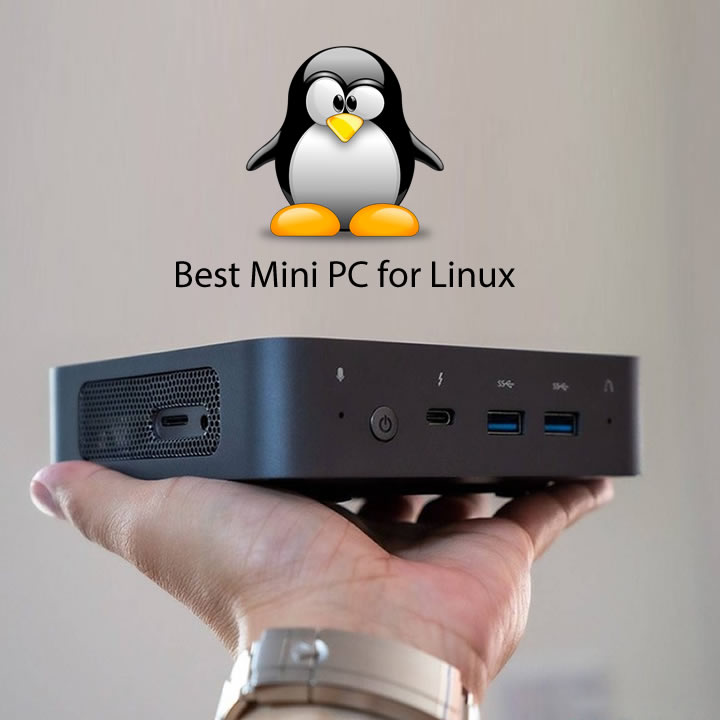There are many different types of mini PCs on the market today, but which one is the best for you?
If you’re looking for a mini PC that runs Linux, then you’re in luck. In this blog post, we’ll take a look at the best mini PCs that come pre-loaded with Linux. We’ll also provide some tips on what to look for when choosing a mini PC.
What is a mini PC?
A mini pc is a small form factor computer that is designed for specific tasks. It usually has a lower price point than a full-fledged desktop computer and consumes less power. A mini pc typically has fewer ports and expansion options than a desktop computer.
Why Linux is the best operating system for a mini PC
There are many reasons why Linux is the best operating system for a mini PC. One reason is that it is very lightweight and can run on very low-powered hardware. This makes it ideal for a mini PC, which is often used for tasks such as web browsing and word processing.
Another reason why Linux is the best OS for a mini PC is that it is very stable and reliable. This is important for any computer, but it is especially important for a mini PC, which is often used as a primary or backup computer.
Finally, Linux is also very secure.
Security is important for any computer, but it is especially important for a mini PC, which might be used to store sensitive data.
What are the benefits of a mini pc?
A mini PC can offer a number of benefits over a larger desktop computer. They are often more energy efficient, generate less heat, and are cheaper to run. A mini PC can also be more portable, making it easy to take with you on the go.
Additionally, mini PCs often come with lower specs than desktop computers, making them ideal for basic computing tasks such as web browsing, emailing, and social media. If you don’t need a powerful machine for gaming or video editing, a mini PC could be the perfect solution for you.
How to set up your mini Linux PC
Installing a mini PC is simple and only takes a few minutes. Here’s how to do it:
- Choose your mini PC. There are many different models and brands available, so take some time to research which one will best suit your needs.
- Connect the power supply and any other necessary cables to your mini PC.
- Insert the Linux installation disc into your computer’s optical drive and boot from it.
- Follow the on-screen prompts to install Linux on your mini PC. Be sure to select the “Custom installation” option so that you can choose which software packages to install.
- Once the installation is complete, reboot your mini PC and enjoy!
The best mini PCs for Linux
There are many factors to consider when choosing the best mini PC for Linux. The most important factor is undoubtedly the specs of the mini pc. It is important to make sure that the mini pc has enough RAM and storage space to run the Linux operating system smoothly.
Another factor to consider is the ability to upgrade the mini pc in the future. Some mini pcs come with upgradable components, while others do not. It is important to make sure that you choose a mini pc that can be upgraded in order to keep up with the latest advances in technology.
When it comes to choosing the best mini pc for Linux, there are a few standout options that offer great value for money. The Lenovo ThinkCentre M700 Tiny is one of the best options on the market, offering a powerful Intel Core i3-6100T processor, 4GB of RAM, and 128GB of storage space.
If you need a bit more power, then the ASUS VivoMini UN65U is a great option, offering an Intel Core i5-7400T processor, 8GB of RAM, and 256GB of storage space. Both of these mini pcs offer great value for money and would be perfect for running a Linux operating system
How to choose the right mini Linux PC for you?
When it comes to choosing a mini pc, there are a few things you need to keep in mind.
First and foremost, you need to decide what purpose the mini pc will serve. If you’re looking for a general-purpose computer, then you’ll want to consider one with a good processing speed and plenty of storage space.
However, if you’re looking for a mini pc that can handle specific tasks like gaming or video editing, then you’ll want to make sure it has the right specs for those activities. Once you know what you need the mini pc for, you can start narrowing down your options.
There are a few different operating systems available for mini pcs, so decide which one you want before anything else. Windows is the most popular choice, but Linux is also an option for those who are more comfortable with open-source software.
After you’ve chosen an operating system, take a look at the different hardware options available.
Pay attention to things like processor type, memory size, and storage space. You’ll also want to make sure that the mini pc has all the ports and connections you need, such as HDMI and USB.
Conclusion
We hope you enjoyed our roundup of the best mini PCs that run Linux.
These little machines are capable of a lot, and they’re only getting more powerful as technology advances. Whether you’re looking for a tiny computer to take with you on the go or a fully-fledged desktop replacement, there’s a mini PC out there that will suit your needs.
And, thanks to their small size and low power consumption, mini PCs are much more eco-friendly than their larger counterparts. So, if you’re looking to do your part for the environment, a mini PC is a great way to start.

